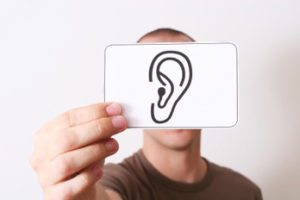
Homophones: Hear, Here
When I see professional signs or business documents with words spelled incorrectly, it’s like someone’s dragging nails down a chalkboard, which is not a sound I want to hear. But I try not to get too riled up. I know that spelling isn’t easy for everyone. However, I do believe that with a little effort,…Read More

How to Play and Pretend Your Way to Breakthrough Writing Ideas
My little niece used to love to sit with a grown-up book spread across her lap, reading a story out loud — except she couldn’t read yet. She was making it all up — pretending. During play, she invented new words. One time we were playing with some toys, and I asked one of their…Read More

Can the Right Writing Tools Help You Write Better?
When I first started writing, it was just me, a ninety-nine cent pen, and a cheap spiral-bound notebook. Using those tools, I wrote dozens of poems, stories, and journal entries. These days, I’m surrounded by far more sophisticated writing tools: fancy pens and journals, a computer with writing software, a library of writing resources, and…Read More

Writing Tips: Avoid Clichés
There are many writing tips that tell us what to avoid in our work: We should keep adverbs to a minimum. Don’t use verbiage, which is excessive and unnecessary language. Watch out for info dumps. And avoid clichés. But why should we avoid clichés? What’s a cliché, anyway, and how do we identify them in…Read More

A Messy, Liberating Guide to Journal Writing
This post contains affiliate links that earn commissions from qualifying purchases. You should see my journal. It’s a cacophony of words and images, scribbles, doodles, and scraps of ideas tucked between the pages. It’s sort of a mess, and I like it that way. I know some writers are diligent about keeping their journals pristine….Read More

Ten Personal Journal Prompts
Most writers keep a journal of some kind to jot down ideas, scenes, thoughts, and questions. Journals can be used in many different ways. However, one of the most traditional uses for a journal is to write about one’s own life. Often, this type of journal is called a diary. It’s not always easy coming…Read More

Storytelling Exercise: Tone and Mood
Today I’d like to share an excerpt from Story Drills: Fiction Writing Exercises, which helps beginning to intermediate storytellers develop fiction writing skills. This exercise is from chapter sixty, and it’s called “Tone and Mood.” Enjoy! Tone and Mood Tone and mood give a story a sense of atmosphere—how a story feels—its emotional sensibility. Atmosphere is…Read More

Writing Tips for Creating a Complex Villain
When it comes to writing fiction, we each have our own unique challenges. For some of us, it’s a struggle to come up with names for characters. For others, it’s hard to write realistic dialogue. Maybe you’re like me and find it difficult to write a really good villain — I mean — a really bad…Read More

The Personal Benefits of Writing Poetry
Poetry writing is an excellent practice for strengthening one’s writing skills. Through poetry writing, we gain command of language, cultivate a robust vocabulary, master literary devices, and learn to work in imagery. And that’s just a small sampling of how poetry improves basic writing skills. However, poetry has other benefits that are meaningful on a…Read More

Grammar Rules: Further vs. Farther
Believe it or not, the words further and farther have different meanings, although people tend to use them interchangeably. And it’s no surprise, because these two words look and sound similar, and the difference in meaning is subtle. Plus there are a few circumstances when they are legitimately interchangeable. Let’s solve the further vs. farther…Read More



